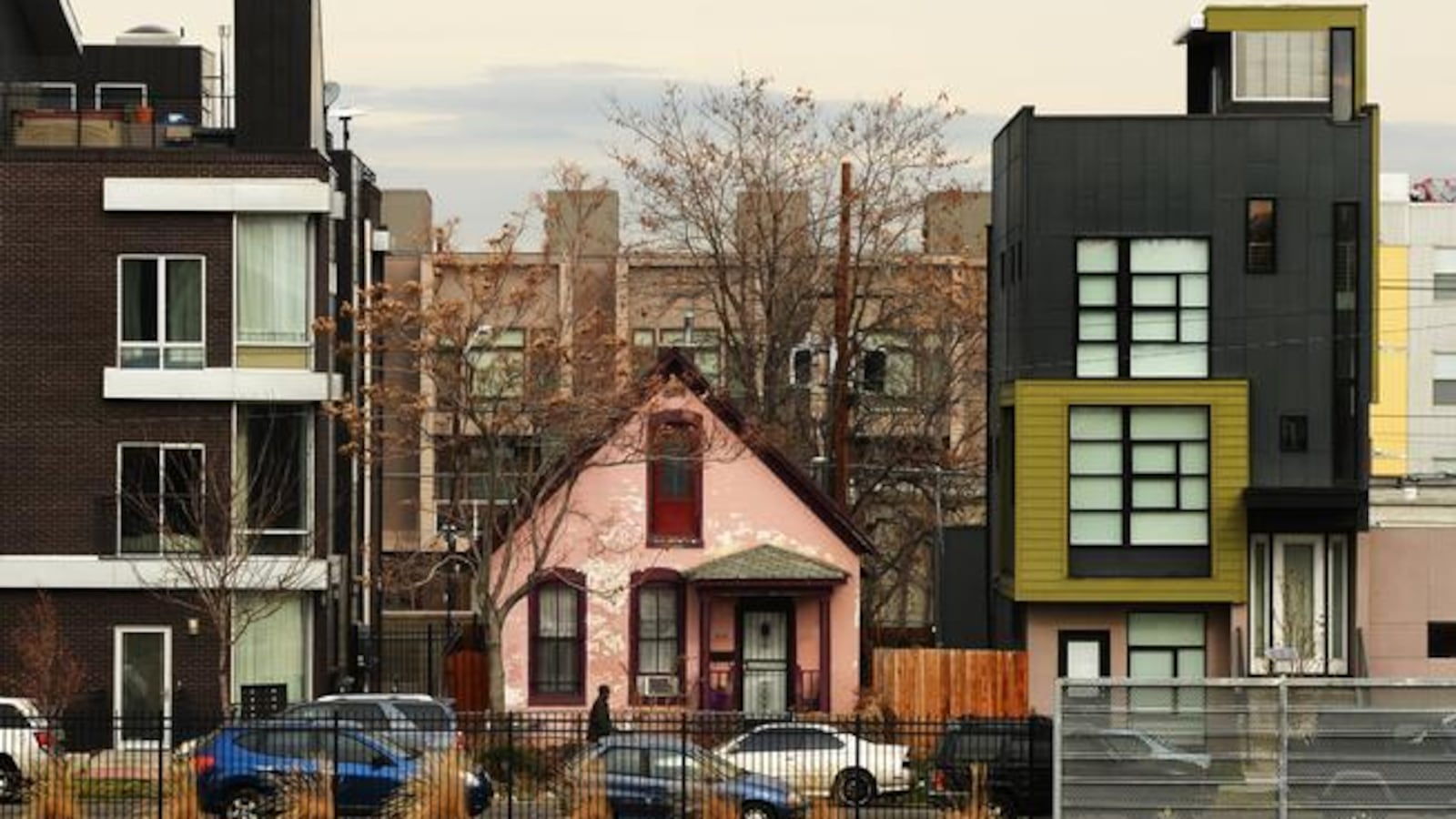Last year, a vocal group of parents were aghast that Denver Public Schools officials couldn’t see the glaring need for a new comprehensive middle school in northwest Denver.
Look at all the new families moving into the rapidly transforming neighborhood, they implored. Look at the bulldozed lots, the construction cranes, the streets with not a parking spot to be had.
They were blind to the mathematics of gentrification. All those sleek modern condos with rooftop patios had been built on dirt where the children of working families had once lived. Gone were families in small, once-affordable homes, replaced by wealthy single people and empty-nesters.
Less than a year later, in an “I told you so” moment, DPS trumpeted the fact that the neighborhood’s existing comprehensive middle school, Skinner, had room to spare. So much room that on the first round of the school choice process, 18 students from outside of Denver got seats.
Few topics loom larger in metro Denver public education than gentrification. The ripple effects of the city’s breakneck development and skyrocketing costs are many — from neighborhoods and schools in Denver being transformed to school districts in Adams County and elsewhere coping with an influx of high-poverty students whose families were priced out of the gleaming new city.
In a piece published Friday in the Colorado Independent, journalist Tina Griego took stock of gentrifying Denver and noted that public schools have always been the “canary in the coal mine.” She quotes DPS planning and enrollment chief Brian Eschbacher — the guy who was right about northwest Denver enrollment projections — about the impact of the city’s transformation:
The changes impact both students – those forced to move and the friends they leave behind – and the school system, which is seeing a drop in the number of its lower-income students. For every percentage point drop in the number of students eligible for free-or reduced-price lunch, Eschbacher says, the district loses $1 million to $1.5 million in federal funding. The number of such students has dropped four percentage points in the last two years and is projected to decrease another 8 to 10 percent in the next four years, through 2020, he says.
This is coming on top of a projected decline in general enrollment simply because as housing prices increase, the number of families with public-school age children falls. “If you take a $100,000 home and scrape it to build $400,000 condos, it’s less likely that we will get students,” Eschbacher says. “Our student population grew so, so fast and now we have dramatically slowed our growth. It’s shocking to have it happen so quick.”
The policy debates about gentrification can be illuminating. Changing communities result in tough discussions about equitable school funding and whether traditional school boundaries contribute to segregation.
The human stories can be heartbreaking. Denver students have written poetry, produced videos and led walking tours expressing how gentrification has uprooted their lives.
These are stories Chalkbeat is dedicated to telling.
To that end, we are focusing additional energy and resources this school year on gentrification’s many impacts.
This means writing about how Denver residents are trying to reconcile the past with the present and future. It means following the most vulnerable students to classrooms in Commerce City and Federal Heights and Westminster, places that don’t get the attention they deserve. It means continuing our commitment to covering Aurora’s attempts to improve its long-struggling schools.
To tell these stories, we need your help. We want to hear from students, parents, educators and others about how the changing face of the metro area is impacting public education.
We want to meet families whose lives have been uprooted. We want to talk to educators whose classrooms look different. We want to identify the areas vulnerable to gentrification, and districts that have taken steps to adapt because of changes they’re experiencing or foresee.
Please contribute to the conversation by contacting us at co.tips@chalkbeat.org, leaving a message at 303-446-4937 or adding your thoughts in the comments below.

